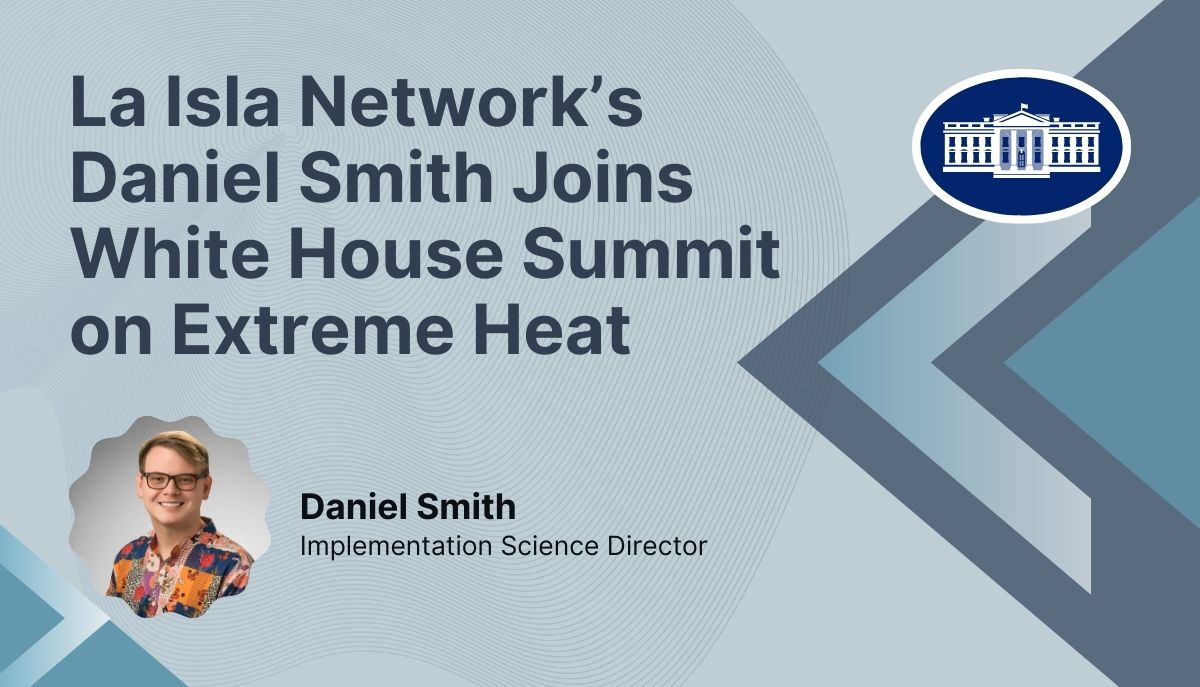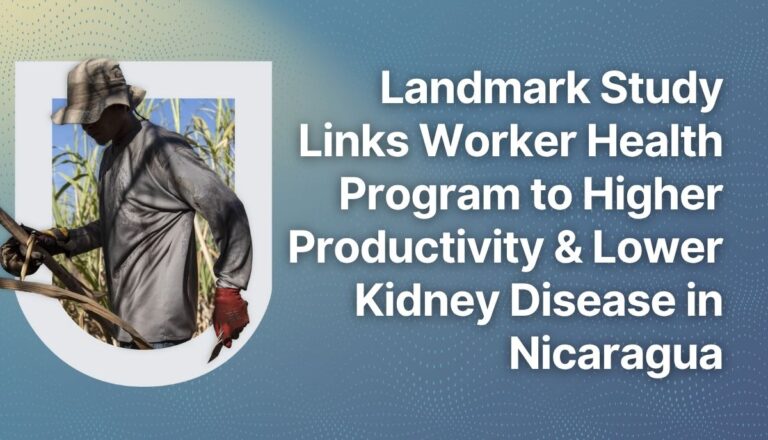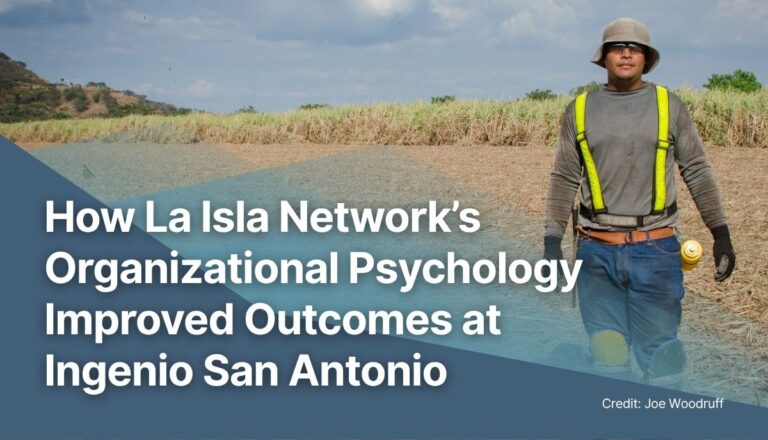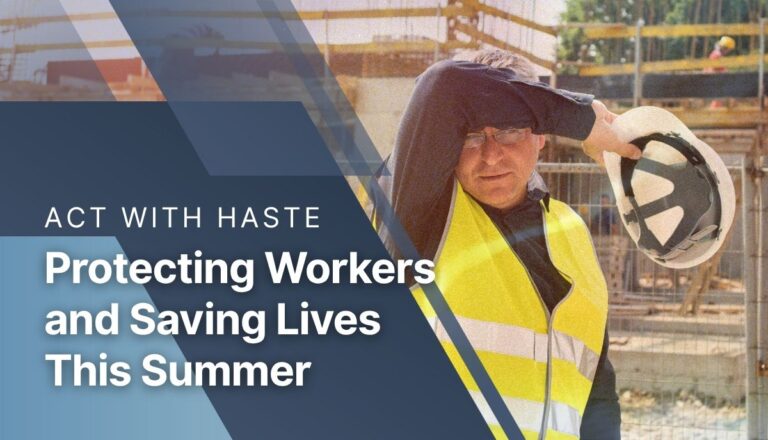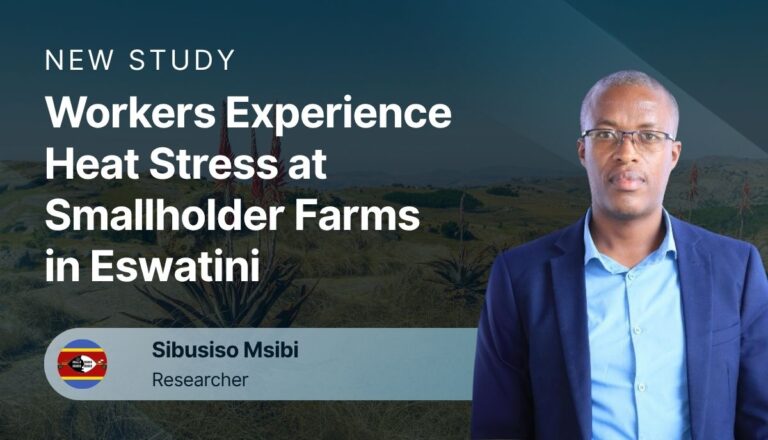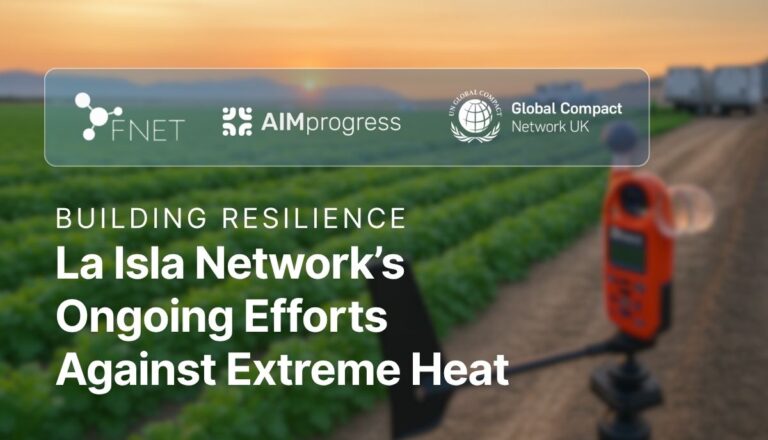We are excited to share that Daniel Smith, Assistant Professor at the University at Buffalo and a dedicated member of La Isla Network’s implementation team, recently participated in a pivotal summit at the White House focused on extreme heat and its impacts on human health. This gathering marks a significant step towards addressing the pressing challenges posed by climate change, particularly for vulnerable worker populations.
What Was the Summit About?
The White House convened a select group of over 100 experts from across the United States to discuss the escalating issue of extreme heat due to climate change. The summit aimed to facilitate dialogue among federal agencies, researchers, healthcare professionals, industry leaders, and advocates to identify actionable solutions to mitigate the health risks associated with high temperatures.
Smith was honored to be part of this important event, representing both the nursing profession and the field of occupational health.
The summit began with insightful presentations from various federal agencies, highlighting resources such as funding mechanisms, data sets, and toolkits designed to combat extreme heat. Following the presentations, participants engaged in roundtable discussions on specialized topics. Smith was assigned to the “High Heat and Human Health” roundtable, where he was the only nurse and one of just two occupational health professionals. His unique perspective was crucial in emphasizing the often-overlooked challenges faced by workers exposed to high heat conditions.
Why Was It Important?
The summit signifies a critical acknowledgment by the U.S. government of the severe impacts of extreme heat on both the general population and workers in high-risk occupations. Smith highlighted the unique role that nursing plays in occupational safety and health, acting as a bridge between various disciplines to ensure comprehensive care and protection for workers.
He stressed that while extensive research funded by the U.S. government has identified effective interventions to protect workers from heat stress these solutions have not been widely implemented domestically. The summit provided a platform to advocate for the dissemination and application of this knowledge within the United States, aiming to safeguard our most vulnerable populations.
Smith also addressed the cultural and economic barriers hindering progress, such as the misconception that prioritizing worker safety detracts from profitability. He advocated for a shift in mindset, emphasizing that investing in worker health not only enhances productivity but also contributes to long-term societal benefits.
What Are the Next Steps?
Building on the momentum from the summit, Smith is optimistic about the future and calls for several critical actions:
1. Legislation and Funding: Secure robust legislation and dedicated funding to establish centers of excellence and research groups focused on extreme heat and occupational health.
2. Implement Proven Interventions: Leverage existing knowledge and successful interventions to protect workers from heat stress, particularly in high-risk industries like agriculture and construction.
3. Strengthen Coalitions: Foster collaborations among government agencies, healthcare professionals, industry leaders, unions, and advocacy groups to drive systemic change.
4. Shift Cultural Mindsets: Promote a broader understanding of the value of worker health, challenging the notion that safety measures hinder economic success.
5. Education and Advocacy: Increase awareness about the risks of extreme heat and the importance of occupational safety through targeted education and advocacy efforts.
Smith’s participation in the White House summit underscores La Isla Network’s unwavering commitment to advocating for the health and safety of workers globally. As we confront the realities of climate change, it is imperative that we translate research into practice and policy. We look forward to the positive changes that will arise from this significant event and remain dedicated to collaborating with all stakeholders to protect those most affected by extreme heat.
La Isla Network is an occupational health research and advisory nonprofit dedicated to ending heat-related illnesses among workers and their communities worldwide. Our mission is to protect workers in a changing climate. We develop and implement data-driven worker protection and management assessment protocols to improve the resiliency of workforces and businesses to heat stress. Our work is backed by best-in-class researchers, industry leaders, and government and multilateral institutions like the ILO.

